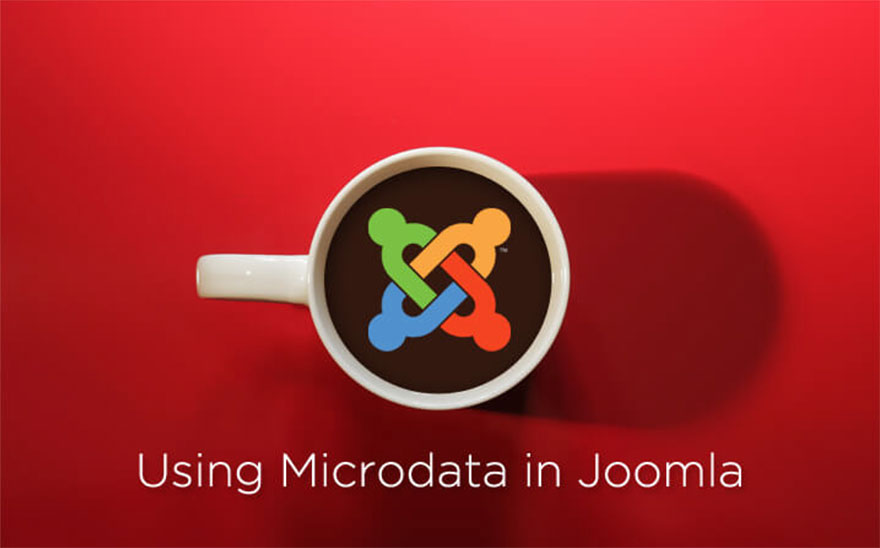
Joomla is one of the most popular Content Management Systems (CMS) and is being widely used across the globe for all kinds of websites. The websites need to rank higher on search engines organically to attract more audiences and produce better results for their respective companies. To get started with Joomla, you first need to download the latest version of the CMS, and then, select a self-hosted or free Joomla website as per your requirements.
Microdata in Joomla, also known as Rich Snippets or Structured Data, helps search engines to understand the content present on the website in a better way. It uses semantic information to make the content more SEO optimized, which might improve the ranking of the site consequently. With Microdata presenting all the relevant information like content type, rating, and author info to the search engines, browsers, and web crawlers; the browsing experience of the customers improves significantly.
Microdata was introduced in the version 3.3 of Joomla CMS and was listed as a default feature. There is no choice of deactivating this function. You can check out the Microdata of your website in the source code of your site. To learn about the use of Microdata for Joomla in detail, let us answer some frequently asked or basic queries about it.
What is Microdata? What is the need for using Microdata in Joomla?
Microdata assembles the metadata with basic content to make it convenient to understand for search engines, browsers, and content crawlers. From Joomla 3.3, Microdata is present in the source code by default, and you do not have an option of avoiding its use of it. Also, it is advantageous for your business, as it makes the website user-friendly and offers a simple operation, which can result in boosting your SE rankings.
Does Microdata ensure an improved ranking on search engines?
We have already mentioned that Microdata helps in SEO optimization, which directly influences keyword rankings. However, there is no proof or document that supports this statement of improved ranking on search engines. Nonetheless, Microdata certainly helps improve your visibility on search engines, resulting in an increase in site traffic.
Does Joomla support all Microdata types?
No, Joomla does not support all Microdata type syntaxes. Instead, it only focuses on the syntaxes related to the content and contact personnel.
How to use other Microdata types?
The Microdata types, other than the content and contact person, can be shown by three methods. To use the product, event, offer, etc:
- Add their properties directly to your content.
- Override your template by adding the properties of the product; you need to embed.
- Take the help of third-party plug-ins. There are a lot of Joomla plug-ins that are available for free. You can select them from Joomla Extensions' Directory.
What is to be done to show the Microdata?
You do not have to worry about the coding part, as from Joomla 3.3 the code comes already embedded for your ease of operation. You have to check the Global Configuration and turn on the article's setting or contact's setting. Only when you permit these settings, Joomla will be able to show the Microdata on the website.
After enabling all the settings of an article, how to overcome the errors displayed by the Structured Data Testing Tool?
Firstly, check whether you have a Joomla template or some other. There is only a slight possibility of facing this problem if you are using a HotThemes template because all Joomla templates are designed and tested to successfully display the Microdata.
Secondly, in the case; you are not using a Joomla template by HotThemes, ask your template service provider if your template supports Microdata presentation or not. Also, there can be a possibility that the template you are using has overridden the code, making Google or other search engines not able to detect it.
What are the reasons of Google not able to show the Rich Snippets, even when they can be seen in the Structured Data Testing Tool?
This problem might arise due to three different reasons:
- Google search engine only displays some specified content types like music, reviews, people, events, products, businesses or organizations, and recipes. However, the testing tool of Google identifies all the data but is not able to display it.
- Sometimes, Google search takes some time to crawl your website, that is why; Google is unable to show Rich Snippets in the search results.
- Google has some set quality standards and guidelines. If your content is not matching that level, it will not be displayed in the search results.
To solve more queries about Google search results, you can directly reach out to Google Support.
What is the procedure to upgrade to the latest version of Joomla, without losing data?
The first and foremost requirement is taking the full backup of your data. Secondly, you need to just upgrade your templates and Joomla. Even if you have customized your files or layouts in the previous version, you can implement those changes in the latest version as well by comparing it to your previous layout.
Conclusion
Joomla is growing fast with a wide range of websites and services being offered by this CMS. That is why; we have discussed a topic that can come in handy to a lot of newbies for Joomla. I hope that the major doubts of the audience and mainly the new users of Joomla will get cleared regarding the use of Microdata and its functioning.
Keep following us for more such articles. Do comment or write to us if you have any other queries or feedback. Cheers!
Author Bio
Garvit Narang loves to pen down his knowledge to share it with the world. Currently working as a mobile app developer at Skylark Infotech, a renowned IT firm, he spreads his leisurely time between reading tech blogs and exploring new gadgets.